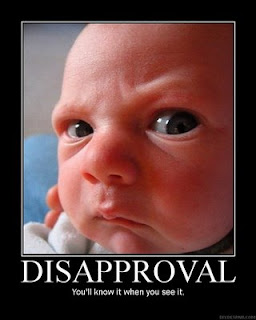Deep breath. Social proof... Here is the breakdown of my outreach efforts and results, be they as insignificant as they are. Here goes!
One of my gold-mine finds was the Nathaniel Hawthorne Society. What an awesome collection of scholars!! I emailed all that I could find information for, and read everything they'd written on The Scarlet Letter. They offered a fascinating array of thematic foci, and I found some great support for my topic in their work. I contacted
David Greven, Ell
en Weinauer, Sa
muel Chase Coale,
Jason Courtemanche,
Robert Milder, and
Magnus Ullen (who I think has a super cool name.) "Gold mine" remains a relative term, however... Their texts have been the only interaction I've really had with them so far. I will say, though, that trying to make connections between my topic of confession/concealment and the interests of each of these professors was a really good exercise.
As I briefly described in a previous
blog post, I also had a more successful, if perhaps slightly more trivial dialogue through Facebook with a Texan boy-band named The Scarlet Letter. They explained to me their reasons for donning that name, and changed my perception of rock bands. Classic literature in the modern age! Whoo! Also on Facebook, I contacted one of my good English major friends and talked through my ideas with her. She helped validate my ideas in their beginning stages and gave me some good direction with where to go in the future. I also got to hear her boy update, which was equally necessary. Thanks Jayne!
Here come the random contacts. After looking through SlideShare for a while, I finally found a
presentation that didn't scream "high school project." The analysis and overall consideration of the many, many elements within the novel were great, so I did some more stalking (anyone else ever feel that way when searching for social proof? "Ooh! Good source. Maria Teresa Ciaffaroni? Hm... lets see if I can find her email address, Facebook account, or fan club.") and sent her an email. No response from her either. An earlier attempt stemmed from a
book review I found of Marilyn McEntyre's novel, "Reading Like a Serpent." She was super cool- her
website showcased her books, poetry, devotionals, etc. and even had a page through which to contact her. Though that seemed really convenient at first, it turned out to be one of those unfortunate "I'm not sure if it actually sent this... maybe if I press Submit five more times then it will work!" moments. So who knows if that even went through.
My most consistent activity has been on Google+. Though I initially only searched for The Scarlet Letter, I eventually broadened my search terms and found a whole new world of media enthusiasts. I came across some existing conversations about topics similar to mine, even related to the digital age. I made comments, sent some messages, and then these conversations led me to some Google+ celebrities, like
Esteban Contreras and
Gideon Rosenblatt. I've posted comments on their conversations most relevant to me, and even messaged them with questions. This has yielded me some very nice +1's, and some additional exposure to the current technological issues involved with personal information, etc.
Though the idea of social proof left me extremely skeptical and nervous at first, I've experienced a "mighty change of heart". I never could have guessed just how excited that list of Hawthornian board members would make me- just think of all the things they could say to me if they had the chance! The idea is thrilling. Even though I don't seem to have had much success, I realize that if I'd picked up (or begun to develop, rather) this skill earlier, I could've had even more exciting experiences with all those untapped enthusiasts and scholars out there. In my social proofing future, I think I'll try to aim at the more unsung, underscheduled, scholars who have both valuable opinions and a bit more time with which to respond. I keep picking on all those bigtime professors and trendy technological gurus. Busy, busy people... Anyhow, here is to social proof :) Maybe we can be friends!













